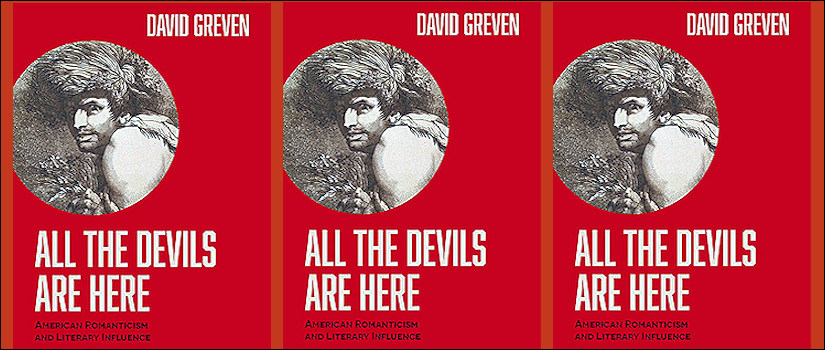“All the Devils Are Here” views literary influence as the enactment of narcissism and melancholic identification
At the heart of David Greven’s new book, All the Devils Are Here: American Romanticism and Literary Influence (UP of Virginia, 2024), is a theory of what it means to say that one author has been “influenced” by another. Greven contends that influence emerges not from an Oedipal conflict for supremacy, as critics have commonly argued. It refers instead to a complex blend of loss, identification, and imperfect repetition by one writer of an earlier writer’s disposition toward gender and power. All the Devils pays special attention to the specters of Shakespeare and Milton in this context. In a series of chapters that pair works by Hawthorne, Melville, and James Fennimore Cooper with texts by these precursor figures, Greven provides a revelatory new reading that shows how male Romantics inherited while rewriting the category of the feminine as an ambivalent signifier for male creativity.
Wyn Kelley of MIT calls Greven’s writing in the book “splendid.” “With his open-hearted engagement with texts,” Kelley continues, “Greven offers new styles of connection and navigates critical questions deftly and in ways that illuminate the work with tremendous lucidity and élan.”
For more information see here. And for a list of Dr. Greven’s extensive publications in his ongoing exploration of masculinity, power, and culture, see his department webpage.
